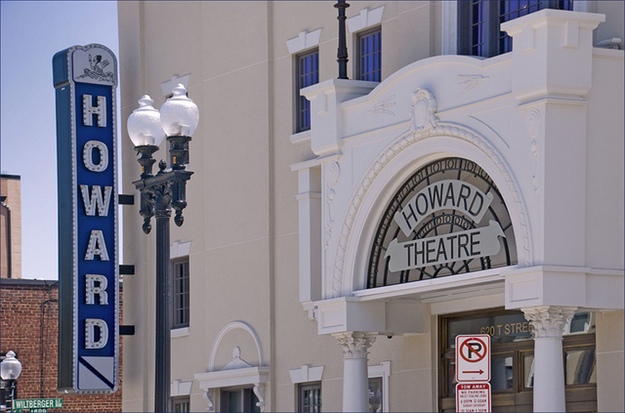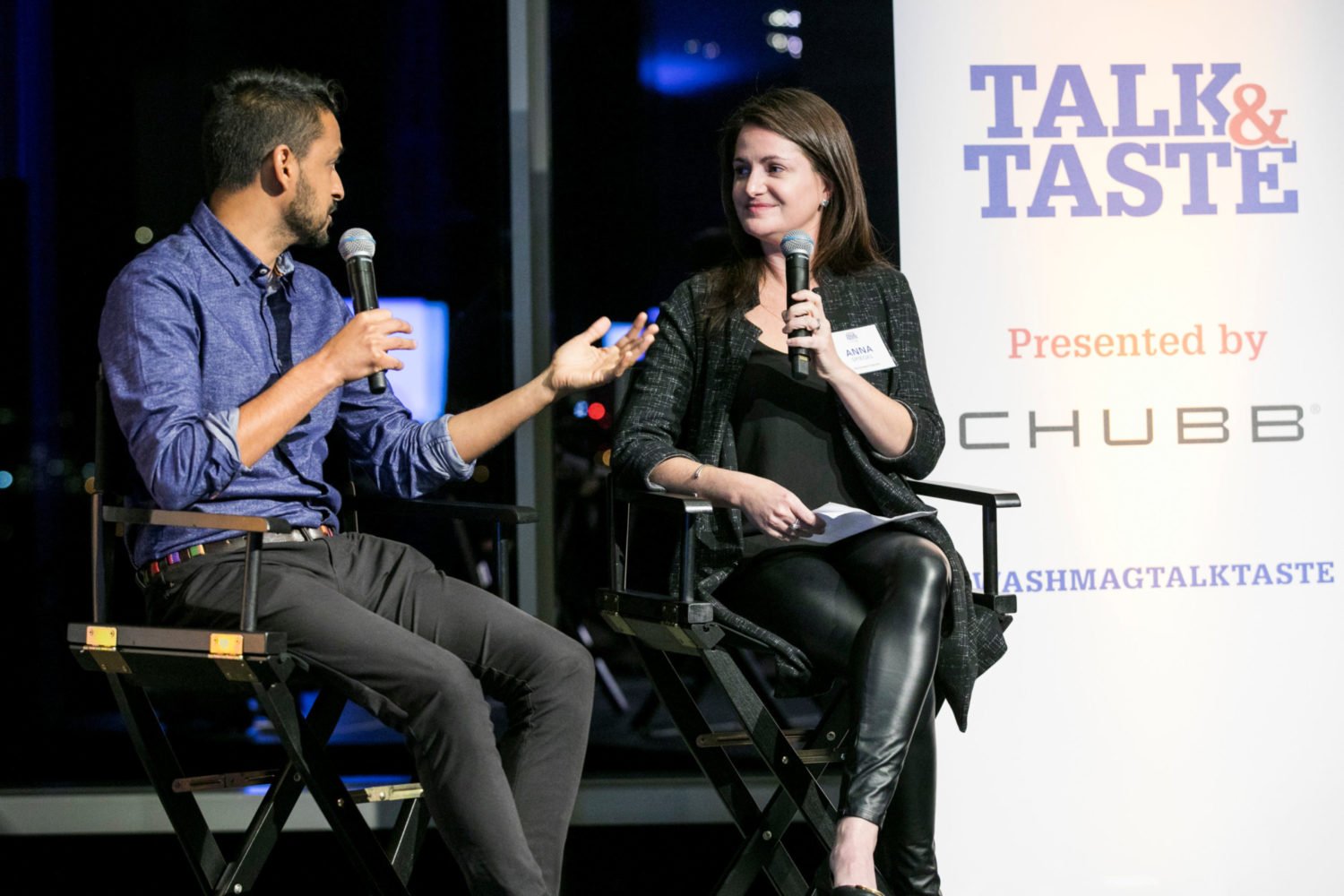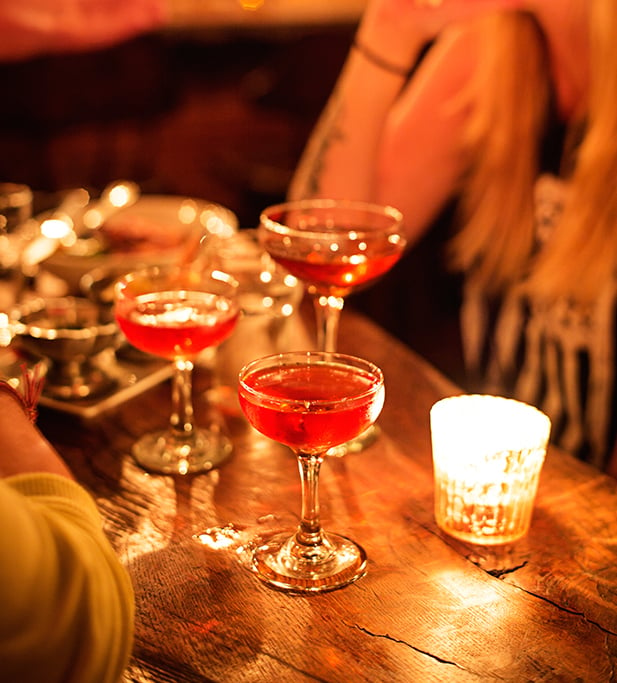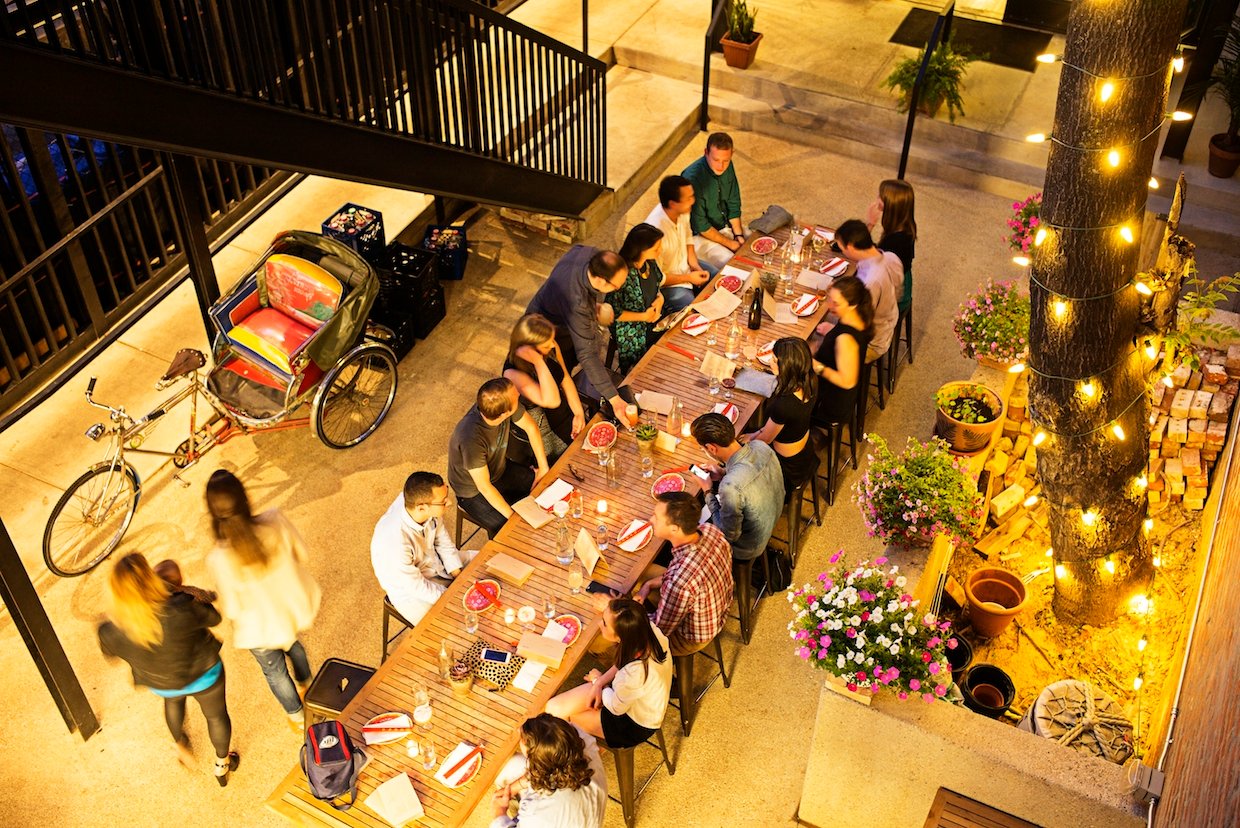Update: We have learned that the award mentioned below, dubbed the D’USSÉ Tom Bullock Award for Distinguished Service, will go to Ann Tuennerman, founder of Tales of the Cocktail. Held each July in New Orleans, the hugely influential conference brings together bartenders, liquor reps, drink writers, and other spirit-minded people for five days of seminars and parties and such.
Mixology is a word that’s easy to hate—or at least easy to hate-use, employed sarcastically after enduring snotty treatment at a cocktail bar, for instance. The fact that it has been co-opted as a public relations buzz term does it no favors. Today so many restaurants, from corporate chains to startup corner bistros, describe alcoholic offerings as “mixology programs.” It’s no longer just pretentious—it’s meaningless.
But the utility of a word ebbs and flows. In the early- to mid-aughts, “mixology”—coined in an 1856 Knickerbocker magazine article—helped bartenders reclaim pride in their profession. Their parents may see “bartender” as a dead-end gig, but “mixologist” could be a career choice. (Though anecdotal evidence suggests baby boomers remain wary of the vocation, fancy neologism or not.) And for a group of 19th-century black bartenders in Washington, the term represented an opportunity to band together and use their profession to get ahead in a world that offered little outside opportunity.
Cocktail historian and Esquire contributor David Wondrich says an interest in understanding bartending history outside the contributions of “mustachioed white guys” led him to discover the Black Mixology Club, a group of pre-Prohibition African-American barmen who formed a club to support one another and—since these are bartenders we’re talking about—throw big parties. Other than Tom Bullock, who in 1917 became the first black bartender to publish a cocktail book, Wondrich knew little about early African-American bartenders when he started. (Odd factoid: That work, titled The Ideal Bartender, features a foreword by the grandfather of George Herbert Walker Bush.)
Records of black bartenders popped up here and there in cities such as Cincinnati, but Wondrich discovered they were more common in the South—particularly in Washington and Richmond, Virginia. Source material about the Mixology Club is scant, but Wondrich found some documentation in papers like the defunct Washington Bee. “The white press saw them as a curiosity,” he says. Sadly, reporters were seldom curious enough to publish recipes, though Wondrich believes elaborate garnishes may have been a trademark of the era’s black bartenders.
Bourbon Steak bartender Duane Sylvestre says unveiling the history of African-American bartenders helps drink mixers of color see a place for themselves in the long history of the profession. Black bartenders are less likely to be lured by the hipster trappings of modern mixology, he says, and have been less quick to embrace bartending as a career with longevity. While attending Tales of the Cocktail in New Orleans last year, Sylvestre and Wondrich met with a group of Washingtonians eager to celebrate the little-known history of the Black Mixology Club and other notable black bartenders in the city—people like Dick Francis, a freed slave who used bartending to eventually buy property and send his son to medical school.
Along with locals Derek Brown (the Passenger and Columbia Room), former Cocktail Kings host Colin Asare-Appiah, and Garrett Peck, author of the book, Prohibition in Washington DC: How Dry We Weren’t, they have organized a May 10 World Cocktail Week Event, DC Toasts, to honor the pioneering mixologists of color. Held at the Howard Theatre, it will feature a performance by go-go group the Chuck Brown Band. Bartenders will pour drinks inspired by or from the era, including something called the Flower Pot Punch. An award will celebrate outstanding service in the industry. Presenting it: Daryl Bullock, grand-nephew of Tom.
Catch the event organizers on the Kojo Nnamdi Show Wednesday at 12:20.

















